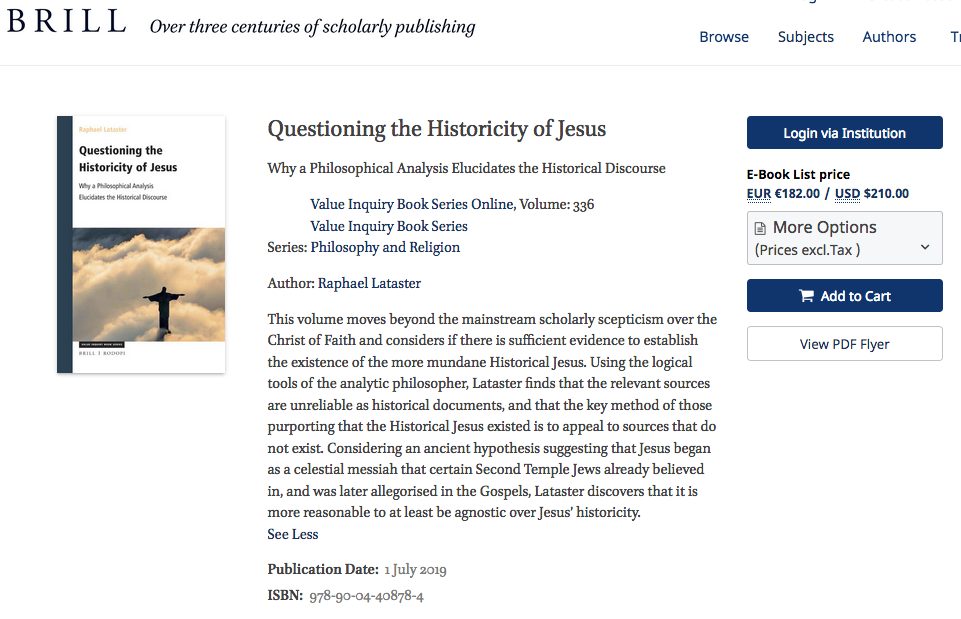No doubt of interest to some readers, a new title from Brill:

If you enjoyed this post, please consider donating to Vridar. Thanks!
Musings on biblical studies, politics, religion, ethics, human nature, tidbits from science

This work is licensed under a Creative Commons Attribution 4.0 International License.
No doubt of interest to some readers, a new title from Brill:

I have introduced Lataster’s book @ “Talk:Christ myth theory § New Book WP:weight”. Wikipedia.
Wow! The prefaction is written by James Crossley “in the flesh”. I believed that he had inherited by Maurice Casey a particular contempt against the mythicists. At contrary, can I conclude now that he is possibilist about the Jesus myth?
I was fed various ideas about the views of Crossely and Davies by Stephanie Fisher, student and partner of Maurice Casey, when all of them evidently had a close collegial relationship. I never saw any independent confirmation of Fisher’s assertions from either Crossley or Davies themselves. In fact Davies a few years later made it clear that he believed New Testament scholars definitely should be open to the question of the historical existence of Jesus. So Davies flatly contradicted the impression Fisher was trying to pass on to me about his views. I have never hears anything from Crossley on the subject. Crossley states in the Foreword you are referring to:
Only $300.
I’ll rush out and buy it.
I looked at several of the sample pages. Looks like a really good read. But, I didn’t see much that I didn’t already know, which means I can’t justify buying it for the price being asked.
In less than 10 years agnosticism to Jesus historicity will be the majority view.
“This book is dedicated to Philip R. Davies.”
What I see on the preview pages suggests this is a rewrite of his earlier book Jesus Did Not Exist.
A 2019 journal article by Lataster:
• Watson, Brenda (2018). “AN UNBELIEVABLE MYTH: THE INVENTION OF JESUS?”. Think. 17 (50): 51–56. doi:10.1017/S1477175618000209. “A response to Lataster’s article defending Jesus’ agnosticism in Think 43.”
• Lataster, Raphael (2019). “DEFENDING JESUS AGNOSTICISM”. Think. 18 (51): 77–91. doi:10.1017/S1477175618000362. “[C]ritical scholars have responded to my recent work . . . I respond to them all here.”